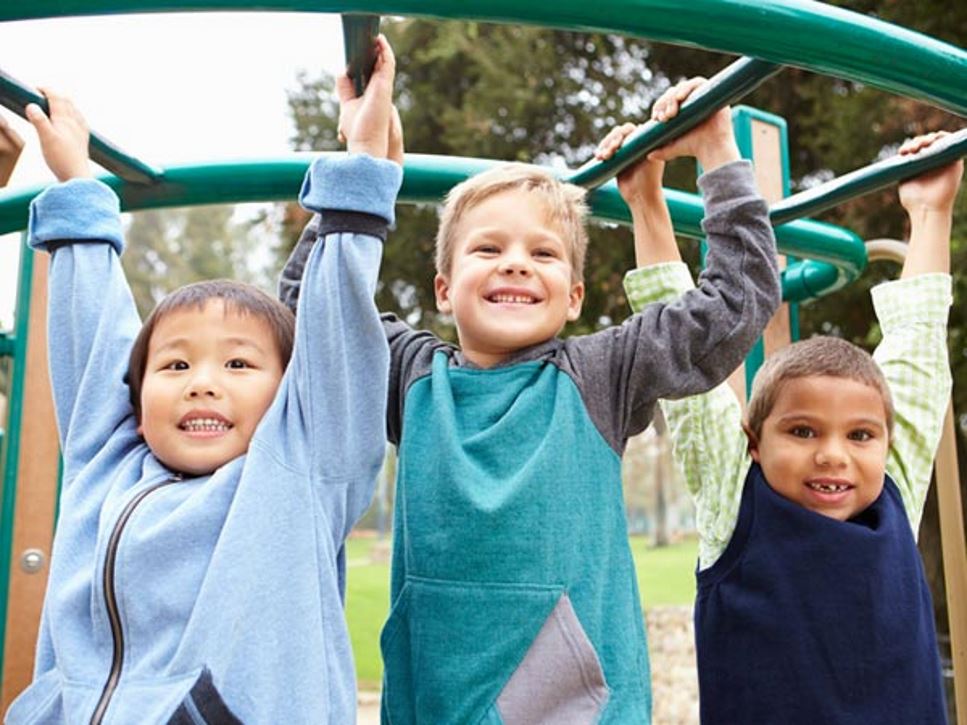If you've spent time in a gym or fitness studio, you may have noticed an abundance of kettle bells, dumbbells, medicine balls and people participating in exercises using one's own body weight. This is called functional exercise.
Functional training involves exercises that simulate real-life body movements by working muscles together rather than in isolation. Strength, endurance, balance, coordination and flexibility all are improved through functional exercise, which can make every day activities easier and reduce the risk of injury.
Functional exercise for children serves as a precursor to resistance training in adulthood and helps children to develop overall body strength while creating awareness for exercise and its many benefits. Children can perform functional exercise but the utilization of free weights or medicine balls should only be done with adults whereas kids can stick to body-weight exercises.
How Does Functional Exercise Apply to Kids?
In addition to being active for at least 60 minutes most days of the week, kids should perform six to eight exercises that work all major muscle groups at least twice a week.
While adults often engage in functional training in a structured environment, exercise for kids needs to be fun and playful. Below are some kid-friendly activities and their benefits:
Endurance
- Tag
- Hide and seek
Strength
- Tug-of-war
- Climbing the monkey bars
- Climbing a rock wall
Agility
- Red light-green light
- Musical chairs
- Freeze tag
- Giant parachute
Coordination and Balance
- Red rover
- Jump rope/double Dutch
- Hopscotch
The Role of Parents
Parents and other caretakers should provide opportunities and encourage kids to spend time each day playing functional yet fun activities.
The first thing parents can do is be physically active themselves. Setting a good example for your child has a tremendous effect on their interest in exercise. When possible, plan an activity hour twice a week where parents and their kids play a sport together or engage in one of the functional exercises mentioned above.
Grandparents and sitters also should set aside play time when watching the kids. Joining in is a great way to spend quality time with them, and an opportunity to show how fun being active can be.
Rachel Begun, MS, RDN, is a food and nutrition consultant and writer based in Boulder, CO.
Find a Nutrition Expert
Looking for credible nutrition information and recommendations? The Academy of Nutrition and Dietetics' network of credentialed food and nutrition practitioners are ready to help!

